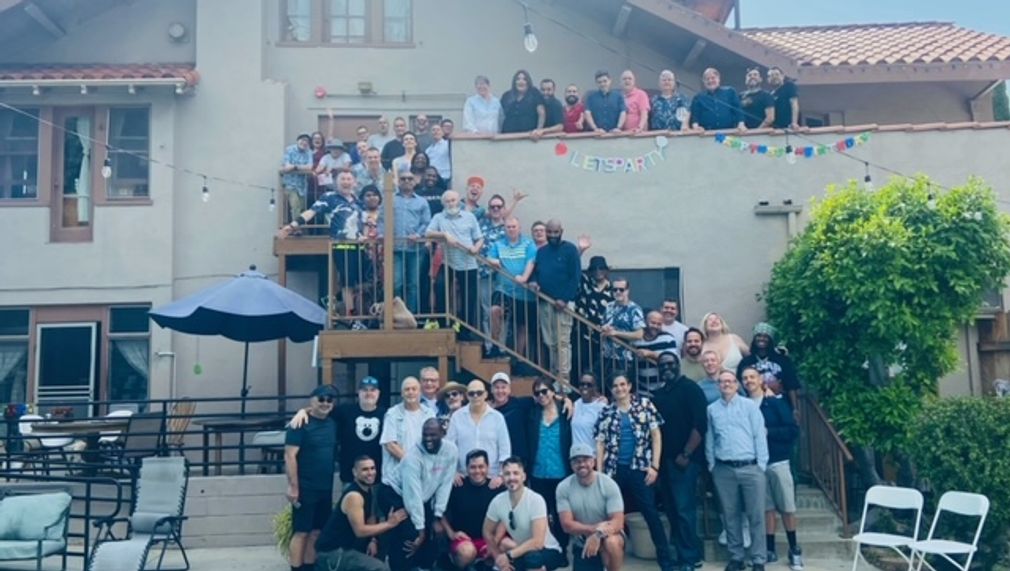Recovery Addressing Chronic Homelessness Employment Readiness
Van Ness Recovery House (VNRH) will support residents in developing a strong foundation for recovery and sobriety rooted in whole person care. This grant will support addressing chronic homelessness and employment readiness through intense support groups, therapy and 12 Step support so the patterns which have lead to and kept homeless cycle going and interferred with the ability to participate in employment readiness program which leads to employment, budgeting, and sober living - all in a short six months! Problem to solution!

What is the primary issue area that your application will impact?
Housing and Homelessness
In which areas of Los Angeles will you be directly working?
County of Los Angeles
In what stage of innovation is this project, program, or initiative?
Expand existing project, program, or initiative
What is your understanding of the issue that you are seeking to address?
Van Ness Recovery House (VNRH) has had the vision of getting chronically unhoused (homeless) people into housing that is supportive of their recovery and sobriety. Much of the "housing" that is often available is not drug and alcohol free which can make the living environment an unsafe and triggering situation. Our residents complete treatment employed of having 32 or more hours a week of volunteer work if on disability. Our residents start treatment having come from chronic homelessness because of alcohol and drug use - they are supported with 4-6 months of treatment so that when it comes time to move they have a solid foundation for their recovery, a support group and through therapy (often times in-going after treatment) they have addressed the traumas/secrets which have kept them "self medicating" the feelings of being ashamed. Drug addicts and alcoholics are often a huge part of homeless issue so to support a solution is rewarding. Breaking life long patterns!
Describe the project, program, or initiative this grant will support to address the issue.
This grant will support our Sober Living which currently houses 22 people at two different locations. When we get financial support to help with the rent then the residents can use their money earned at jobs to save for permanent housing with other sober people. The more units of sober living we can support the more we can move people from chronic homelessness into sober supportive housing- this housing is also supported through on-going aftercare including ongoing sessions with psychologist for an additional six months to insure continuity with employment, recovery, housing, budget and other support. Sometimes new traumas are revealed as a resident stays sober; it is important that the resident knows they can always come back and share in a safe supportive way and learn that yet another trauma revealed and healthy tools to work through these uncomfortable patterns of behavior are dealt with in socially supportive therapeutic way. Many who are drug addicts and alcoholics have been taking medications which were prescribed while they were under the influence and or using - this makes getting an accurate diagnosis difficult we support the residents to get an honest and thorough assessment now that they are sober and in recovery. They are supported while taking medications to learn to read the prescription directions and truly take the medications as prescribed. We also do a great deal of work on internalized homophobia and transphobia - as the world changes this is vital!
Describe how Los Angeles County will be different if your work is successful.
Chronic homelessness is huge among the LGBTQI+ drug and alcohol using community- over the last ten years 88% of our residents entering treatment have been chronically homeless. The use of crystal methamphetamine which is often mixed with other drugs does nothing to support a person becoming housed or stable enough to look for work. We visualize the support of more Sober Living as being a means of supporting more chronically homeless people seeking residential care and having a supportive place to go once they finish residential treatment. At sober living residents learn to put into practice showing up for recovery, showing up for work, learning to live on budget, and stay away from patterns of behavior that have caused relapse or drug/alcohol use in past. The goal is that by living with others practicing healthy patterns of living it becomes contagious and something the resident wants more of - keeping their life on the track of healthier and healthier ! Living in the solution.
What evidence do you have that this project, program, or initiative is or will be successful, and how will you define and measure success?
Van Ness Recovery House (VNRH) has over 50 years of working with the LGBTQI+ community who have sought help due to drug and alcohol use. Since 1973 many things have changed including the primary drugs being used by this community - from cocaine and heroin to the drugs of today methamphetamine and fentanyl. We have changed our program over time going from 90 days the first 32 years to 6 months the last 18 years - crystal methamphetamine changed the amount of time it took for psychosis to minimize enough for treatment tools to begin to make sense and be utilized. The brain takes time after stopping crystal meth use to be able to function - initially residents must be told things over and over. We have much data that shows keeping treatment longer and offering whole person care has dropped recidivism significantly - forward progress in treatment happens with much less start/stop pattens. Becoming employed, living in sober living, being supported no falling into homelessness yet again
Approximately how many people will be impacted by this project, program, or initiative?
Direct Impact: 14
Indirect Impact: 75